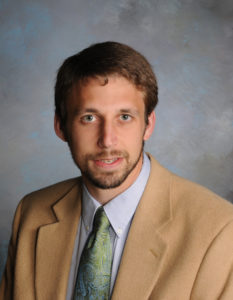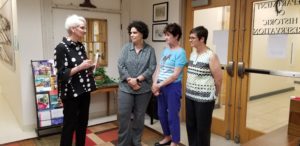
Michael Spencer, associate professor and director for the Center for Historic Preservation
This evening, Thursday, Feb. 13 at 6 p.m., Michael Spencer, associate professor and chair of the Department of Historic Preservation, will give a talk at the Branch Museum of Architecture and Design in Richmond, focusing on Charles M. Robinson’s designs for institutions of higher education in Virginia. More information and tickets ($20, or $10 for Branch members) can be found here: https://branchmuseum.org/calendar/

